Youth Global Forum: Discussing Indigenous Knowledge Systems, Inclusive Development, and A Well-being Economy
Laying out how we can achieve inclusive development and economic growth with Indigenous Knowledge Systems & Practices.
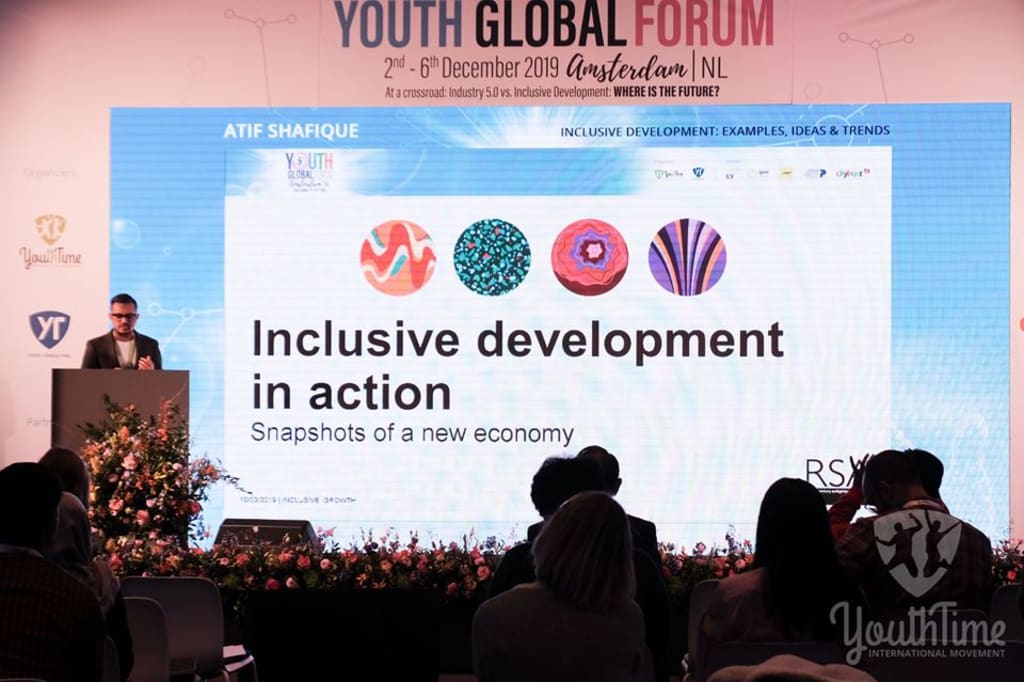
Article highlights:
- Indigenous knowledge systems have a more in-depth understanding of delicate ecosystems. The synergy between indigenous knowledge systems and modern technology are also drivers for inclusive development and sustainable economic growth.
- There is no universal answer to cure inequality. While governments play a vital role in shaping the economy and markets, they will not necessarily do so. In most countries, socioeconomic changes are driven by civil society groups, grassroots movements, and social activism.
- Investing in people, public social structures, education, and lifelong learning (more so for the ageing population) results in a healthier and more productive workforce which may result in skills that will still be usable in the near future.
- The closest possible option to close the gap of inequalities is to change our perspective on economic growth; shifting solely from GDP into a human-centered foundation.
- Case studies on countries that have shifted from the outdated GDP-centred economic model suggest that inclusive development and economic growth are not at odds with each other; they are not mutually exclusive and it's possible to achieve and sustain both.
Amsterdam, the Netherlands - Over 112 youths from 42 different countries participated in the 5th Annual Youth Global Forum held in Amsterdam the Netherlands on December 2-6, 2019. This year’s forum revolved around the theme, 'At a Crossroad: Industry 5.0 vs Inclusive Development - Where is the Future? '
Before eleven project presenters competed to win for the Youth Time idea grant on the final day, workshops, panel discussions, and masterclasses revolving around technology, Internet of Things, and inclusive development took place. In line with the inclusive development agenda, we caught up with Mr. Atif Shafique, associate director at the Royal Society of Arts (RSA), a non-government think-tank based in London, UK. For nearly a decade, his key areas of research included inclusive economic growth, labor markets, and lifelong learning.
[Also read: The 5th Youth Global Forum: 3 Important Take-Aways; Youth Time International Movement: The International NGO You Probably Didn't Know, But Should]
Moreover, he was lead researcher for the Inclusive Growth Commission, a major policy inquiry that created a template for transforming UK’s approach to economic growth, placing social inclusion at its core.
During the experts' panel discussions, Mr. Shafique talked about GDP (gross domestic products) and how this metric for economic development could not predict even the financial crisis of 2008 and will not indicate if we will have one in the coming years. Excessive focus on quantitative growth does not take into consideration the resource distribution, environmental degradation, and quality of life.
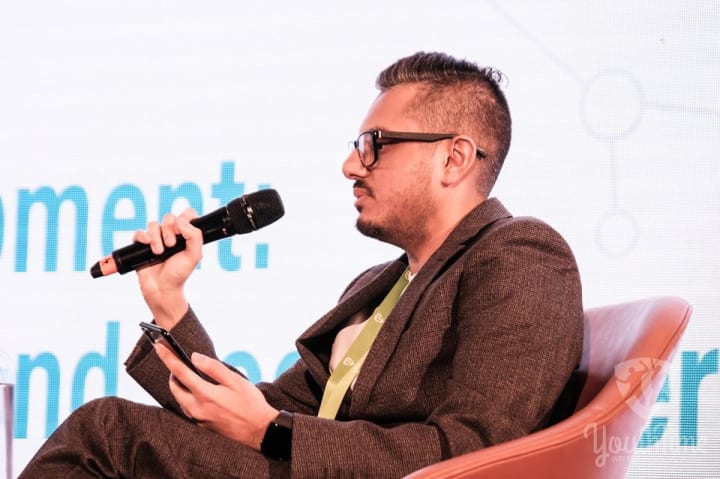
Part of achieving the United Nations Sustainable Development Goals means restructuring government and policy systems that have let inequality to fester for so long. The dominant economic model based on the trickle-down economic theory has been in use by many countries in the world for an incredibly long time. This is despite the reality that when wealth is accumulated at the top and by those at the top, it stays there. For this reason, Mr. Shafique emphasizes humanity should be at the center of policy-making, especially when governments are drafting resolutions for socioeconomic growth.
Mr. Shafique cited New Zealand, Iceland, and Scotland at the front of holistic and human-centered economic policies. While these countries are already developed, it is worth noting that the neoliberal capitalist ideology behind the non-egalitarian model of growth creates economic and social insecurities for both developing and developed nations.
Given this general overview, our conversation largely focused on synergy, indigenous knowledge systems, and how engaging the people through social activism can deliver pressure on governments in order to achieve place-based change.
On synergy between indigenous knowledge systems and technology
In a workshop, Mr. Shafique stated the critical role inclusive development plays in solving the four major crises that create global economic anxiety and insecurity. These crises are inequality and prosperity, climate, legitimacy, and the crisis of hope. All of these are due to a lack of real understanding of the experiences of how the economy works for marginal groups and or those living at the very bottom of society. Integration of local or indigenous knowledge systems and practices (IKSPs) with technology to solve the problems plaguing the quality of human life alongside economic development are relatively nascent. However, appreciation for IKSPs actually helps advance economic growth along with inclusive development.
“If you take places like New Zealand as an example and the Maori people, they have a much more sophisticated understanding of the relationship between people, their communities, the economy, and the planet. They think of the world as a series of ecosystems that are deeply interconnected, interwoven, and delicate. Meaning, you need to take care of the entire ecosystem. You have to take care of the people, the economy, and the planet,” Mr. Shafique said.
In a highly unequal world, and one that is in the midst of a climate and ecological catastrophe, the pursuit of endless GDP growth has become obsolete. The shift to an economy that revolves solely around GDP growth into a Wellbeing Economy, something which New Zealand PM Jacinda Ardern has pledged to do, is arguably the best and most holistic option to close the inequality gap while safeguarding the wellbeing of all their people.
Often, the simplest solutions are the best ones. We have traditional indigenous knowledge systems that have helped IP communities to thrive long before they are endangered by rampant environmental degradation all in the name of 'economic (and political) development'. Mr. Shafique criticized the approach that many advanced economies took over the last quarter of the century, a path developing countries also followed. “ (sic) A completely technocratic and scientific approach to progress which has been based entirely on the exploitation of resources to generate economic growth as the basis for improving people's lives and living standards. And that model of growth has completely ignored those elements of ecosystem of human life that I mentioned before. “
Further, he added“ It has ignored people because a lot of people have completely missed out from economic growth. It has ignored the planet because the economic growth has been environmentally destructive, and it has ignored communities many of whom have not benefited from economic development.”
Going back to synergy and indigenous knowledge, Mr. Shafique, “What indigenous communities offer is a much more holistic understanding of the world. Unless we learn from that, we're just going to continue to destroy the planet. “
"We have to make sure that the policy-making process makes sense from an indigenous perspective as well. As it aligns with their cultures, their values, the way that they feel they should engage and contribute to policy."
On compensation for intellectual rights and reparation for environmental damages
All over the world, indigenous peoples have scant representation in different aspects of governments. If we look at the appalling evidence of exclusion faced by indigenous groups, we can conclude that there is no adequate legal protection for them. A dysfunctional economic system based mostly on the exploitation of resources has resulted in a loss of livelihood for IP communities or has displaced them and made them even more vulnerable to the effects of the climate crisis. Worst of all, the failure of bureaucracy strips off IP communities their cultural identities and access to their own ancestral domains.
Therefore, when we borrow and or use the intellectual properties of indigenous peoples, we have to compensate them for it. Mr. Shafique said, “One thing we need to do is to ensure that they have full political, civic and cultural rights, which they don't have at the moment. If you look at indigenous communities across the world, they're often the most excluded and marginalized and disconnected. That needs to end.”
The persisting system of ‘business as usual’ only perpetuated a world of apathy. People and other living beings are reduced as mere flesh and biology instead of individuals with their own lives and ecosystems.
Mr. Shafique said, “We have to tackle structural inequalities. Indigenous communities should have a right and entitlement to the same level of resources and support as everyone else. There should be some mechanisms that recognize contributions that those indigenous communities made to our politics and the progress that we’re going to have for the next couple of decades. They should, for example, have leadership positions within government.”
Part of tackling that structural inequality is to make sure that marginalized groups occupy a prominent role when governments make policies. As already mentioned, many parts of the world still have inadequate legal protections for marginalized groups. It is right and just to consult these groups, giving them a voice to make them a more prominent part of the policy-making process, which many of them don’t have at the moment. If for example, they are intentionally excluded from the discourse, we who have the voice need to make an effort in understanding the plights of our fellowmen and lending them our platforms so they could amplify their own.
"We have to make sure that the policy-making process makes sense from an indigenous perspective as well. As it aligns with their cultures, their values, the way that they feel they should engage and contribute to policy."
On a truth and reconciliation process
Many countries all over the world have been damaged by neoliberal ideology and free-market capitalism which resulted in severe environmental degradation, displacement of communities, and economic disadvantages for local products due to the influx of foreign goods. This neoliberal capitalist ideology governing our world systems has put too much emphasis on optimizing profits and productivity without taking into account the people.
Yet, if governments change this model into one based on the wellbeing of people, inclusive development and economic growth do not become mutually exclusive. Growth is then not measured rigidly based solely on financial assets that not everyone actually benefits from. New research suggests that equal societies that invest in human capital are drivers that promote economic growth. Investments in quality education, public social structures, and lifelong learning results in a robust and more productive workforce equipped with skills that will still be usable in the near future.
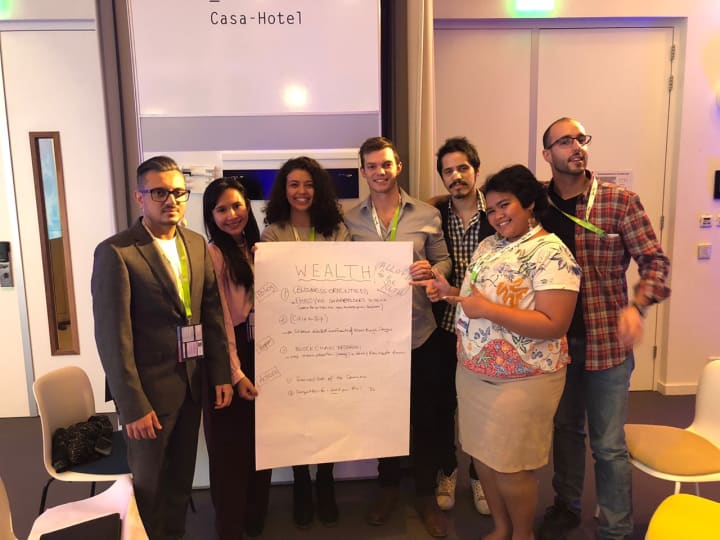
In this, we can deduce that the process in transitioning to a new economic model would be rejected only because it is inconvenient for policymakers to change from something that we as a society have gotten used to.
On the people affected most by the climate crisis
The need for community rebuilding and reparations can trace its roots to the adverse effects of the climate crisis, which in turn can trace its roots on gross overconsumption. On this Mr. Shafique said, “I think the climate justice movement is really important because clearly the effects of climate change is deeply unequal. It’s those parts of the world that had nothing to do with the climate crisis that are suffering the most.”
If you look at the evidence, it is the developed countries and their overconsumption that drastically affects the global South, since the latter is where resource gets extracted. For example, despite having outstanding human development and social democracy, the Nordic models of growth are still very unsustainable. Data from the Sustainable Development Index revealed that Scandinavian countries have some of the highest levels of resource use and CO2 emissions. In his personal opinion, Mr. Shafique stated that countries which contributed most to the climate crisis should pay reparations, invest in infrastructures that support the community, and have a truth and reconciliation process for those advanced nations to recognize the role that they played in oppression.
“I think there needs to be some sort of truth and reconciliation process between people that have exploited and oppressed indigenous communities and indigenous communities themselves. That's the only way to move forward, you have to have the [truth and reconciliation] process and you have to have justice.”
On grassroots movements to advance progressive policies
How do we actually bring about progressive social changes when we can’t trust mainstream politicians to have the public’s best interests at heart? Mr. Shafique is a bit pessimistic about mainstream politicians because he sees them as people who are highly effective at reading the mood of the population. He reiterated that rhetoric is different from implementation and suggests that grassroots movements help put the pressure on politicians to do the things we think they should do.
Further he said, “I think that [grassroots movements] is the way forward. Civil society and putting pressure on politicians to change rather than writing reports and expecting them to have much of an impact. It has to be people power”.
Act as one
There are still many systemic social ills we can't simply eradicate immediately. As with every domestic and or global challenge, we need to have a conducive framework for the processes we plan to undertake. In particular, we need to include the people who will be most affected in the discourse. It is now the moral and political challenge of this generation to rise above the problematic inheritance previous generations have left and is leaving.
Mr. Shafique sounded optimistic in his parting words, urging citizen engagement, true leadership, and acting as one to ensure a better future for everyone - no exclusions.
"First, we should learn from indigenous communities across the world in understanding the world, including the economic world as an ecosystem that is deeply interconnected and that is delicate. We need to learn to respect that ecosystem more than we currently do.
Second, we need social and economic justice for those communities that have been ignored and neglected and marginalized.
Third, current governments and politicians that lead those governments are not doing enough, unless we pressure them. By ‘we’ I mean civil societies and activists. What we need is an internationalist movement of activists that are committed to climate justice, committed to tackling inequality and oppression wherever it exists. We will need to build bonds between that and make it a global movement and create pressure so that these politicians change, and follow through on what they say."
About the Creator
Karina Thyra
Fangirl of sorts.
Twitter: @ArianaGsparks
Enjoyed the story? Support the Creator.
Subscribe for free to receive all their stories in your feed. You could also pledge your support or give them a one-off tip, letting them know you appreciate their work.



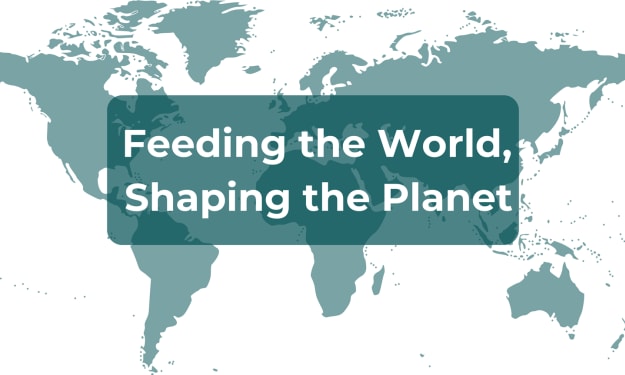
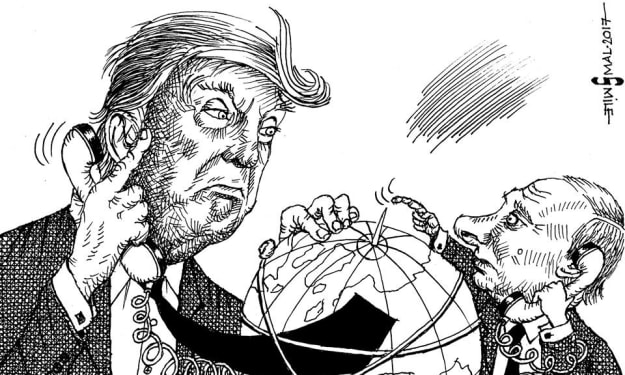

Comments
There are no comments for this story
Be the first to respond and start the conversation.